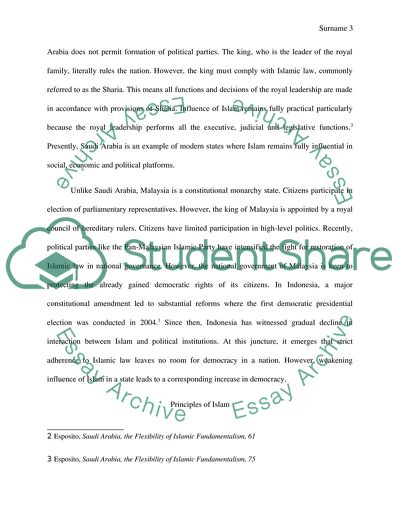Cite this document
(“Islam and democracy are not compatible comment on this sentence Essay”, n.d.)
Islam and democracy are not compatible comment on this sentence Essay. Retrieved from https://studentshare.org/social-science/1660810-islam-and-democracy-are-not-compatible-comment-on-this-sentence
Islam and democracy are not compatible comment on this sentence Essay. Retrieved from https://studentshare.org/social-science/1660810-islam-and-democracy-are-not-compatible-comment-on-this-sentence
(Islam and Democracy Are Not Compatible Comment on This Sentence Essay)
Islam and Democracy Are Not Compatible Comment on This Sentence Essay. https://studentshare.org/social-science/1660810-islam-and-democracy-are-not-compatible-comment-on-this-sentence.
Islam and Democracy Are Not Compatible Comment on This Sentence Essay. https://studentshare.org/social-science/1660810-islam-and-democracy-are-not-compatible-comment-on-this-sentence.
“Islam and Democracy Are Not Compatible Comment on This Sentence Essay”, n.d. https://studentshare.org/social-science/1660810-islam-and-democracy-are-not-compatible-comment-on-this-sentence.


